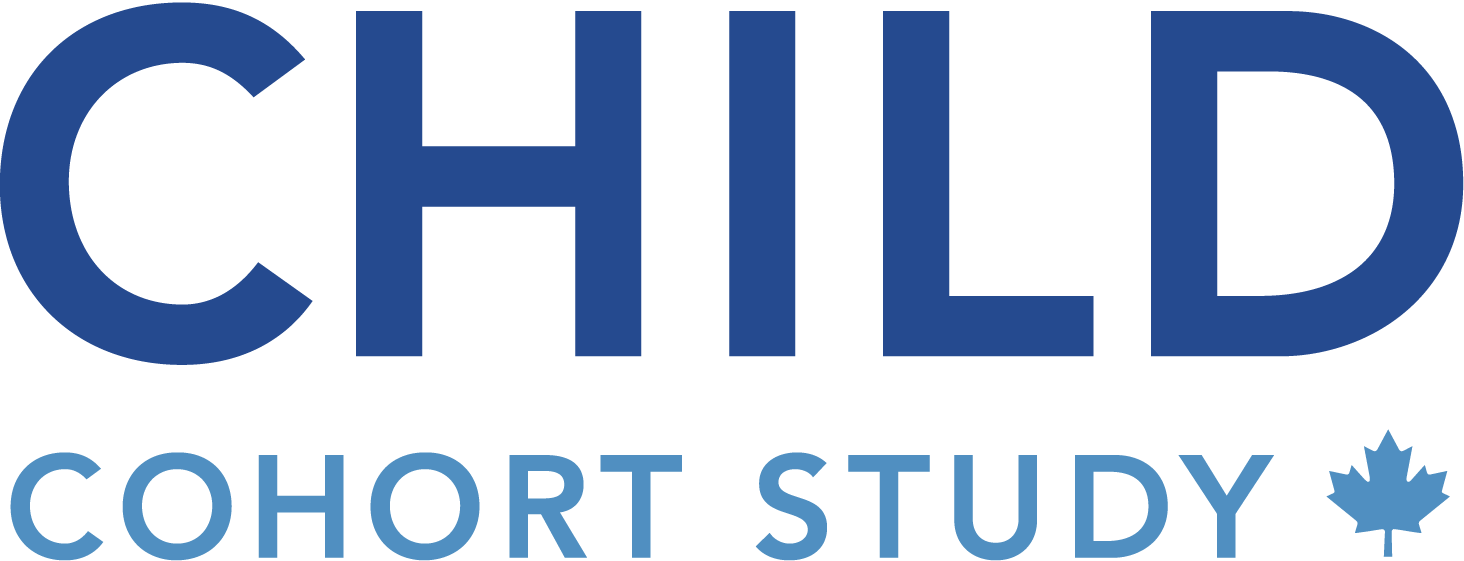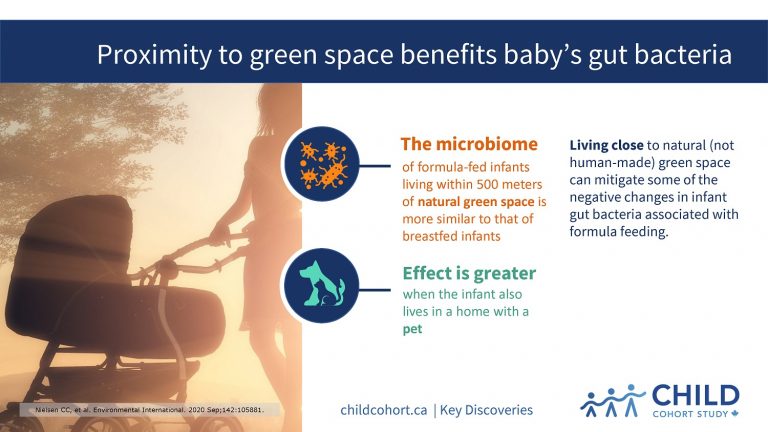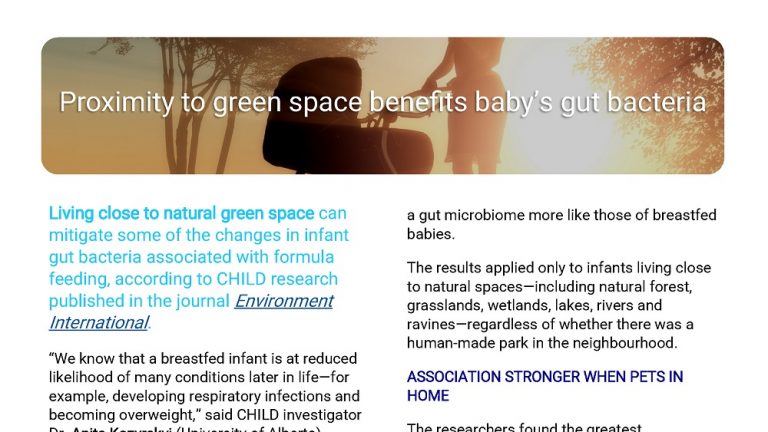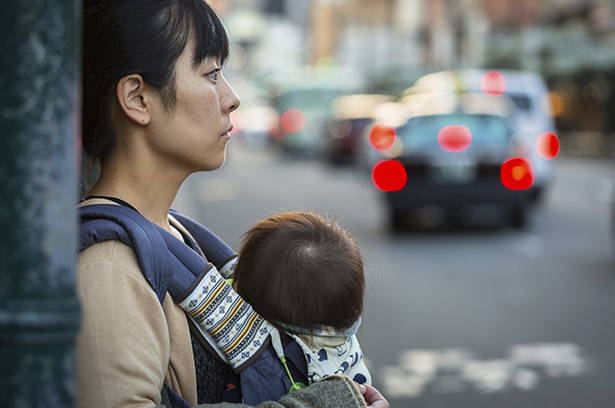Proximity to green space benefits baby’s gut bacteria
Living close to natural green space can mitigate some of the changes in infant gut bacteria associated with formula feeding, according to CHILD research published in the journal Environment International.
“We know that a breastfed infant is at reduced likelihood of many conditions later in life—for example, developing respiratory infections and becoming overweight,” said CHILD investigator Dr. Anita Kozyrskyj (University of Alberta).
NATURE-BASED INTERVENTION?
“However, not every infant can be breastfed. This is one of the first pieces of evidence for a nature-related intervention that could possibly help promote healthy gut microbial composition in infants who are not breastfed.”
In the first study of its kind, the researchers examined fecal samples from 355 Edmonton-based infants participating in CHILD, and then cross-referenced their families’ postal codes with a map of natural green spaces in the city.
They found that formula-fed infants who lived within 500 metres of a natural environment had a gut microbiome more like those of breastfed babies.
The results applied only to infants living close to natural spaces—including natural forest, grasslands, wetlands, lakes, rivers and ravines—regardless of whether there was a human-made park in the neighbourhood.
ASSOCIATION STRONGER WHEN PETS IN HOME
The researchers found the greatest association was for formula-fed infants living in a home with a pet. Though the exact mechanism is not known, they hypothesize that families who walk their dogs may use natural areas more often, or that pets may bring healthy bacteria into the home on their fur.
Dr. Kozyrskyj says the next step for this research will be to follow the formula-fed infants who are exposed to natural areas throughout childhood and track the impact on their health.
Read the story in Folio.





